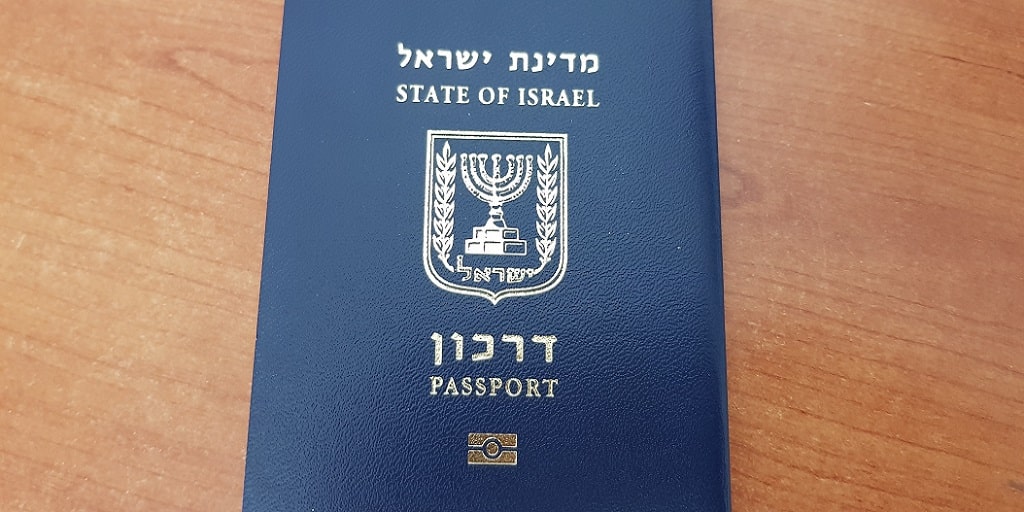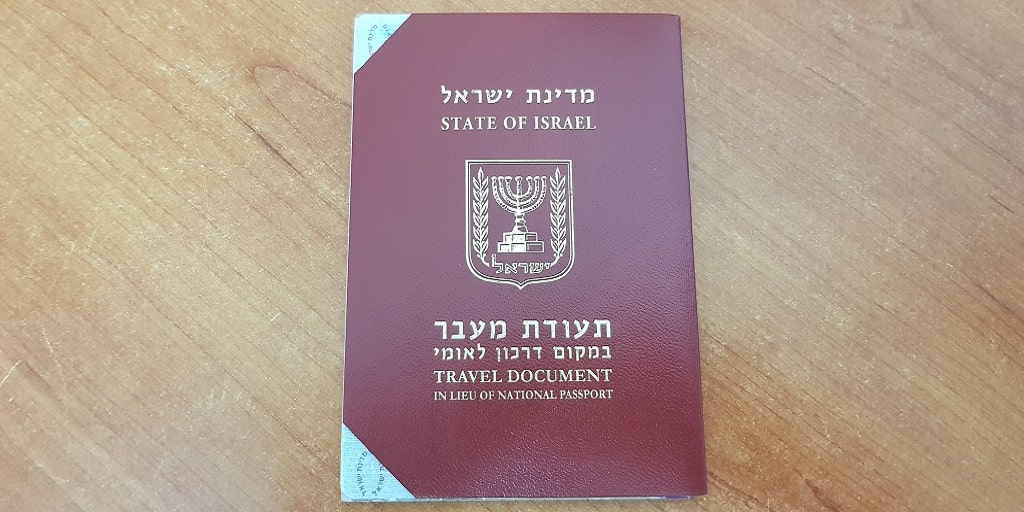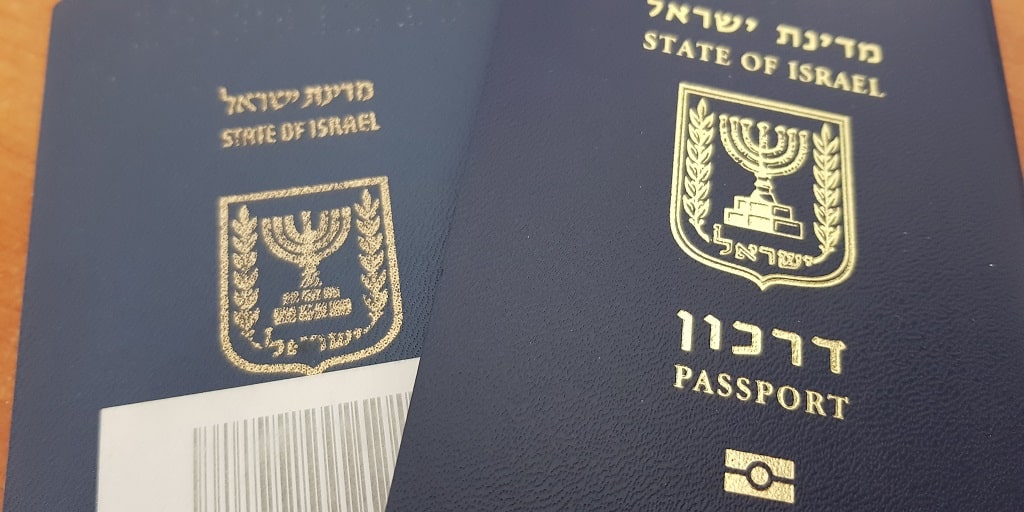Passports are not necessarily an item we think about on a day-to-day basis. But they are incredibly important in understanding the country from which they come. It is easy to find the political implications of passports from around the world, but we often don’t think about the cultural aspects of passports. So often we hear very few aspects of places around the world. It’s hard to get the bigger, 3-dimensional pictures. When we take a look at Israel with this perspective, we can see that there is an international focus on Israeli politics. People don’t always learn about Israeli culture, Israeli food, Israeli art. We can only understand the country as a whole when we look into all of the different aspects of the country and its culture. So, what do Israeli passports really mean?
Where do Israeli passports fit into all of this? What do the Israeli passports represent? And what are the implications of those very passports? There are some very important things we need to know to understand Israeli passports.

Israeli Passports have blue covers….
Many of us don’t think about what the colors of our passport’s covers mean, never mind that the color has a meaning. But in fact they do. There are four major colors for passports around the world: maroon (or burgundy), black, green, and blue. In some cases, countries choose one of these colors to show their connections or alliance to another country. Many Muslim countries choose green, as it connects to the religion of Islam. In Israel’s case, the cover is blue because it represents the new world. This is an idea that Israel identifies strongly with. The color blue is also deeply connected to Judaism. It is the color of the holiday of Hanukkah, it is one of the colors of Israeli flag, and more.
There are some who have an Israeli Travel Document and not an Israeli passport…
There are two major groups of populations in Israel who do not have an Israeli passport. Instead, they have what is called an Israeli Travel Document.
The first group is new immigrants who have recently arrived to Israel. The state requires these new immigrants to hold an Israeli travel document for the first few years before paying for an Israeli passport. It is used in the same ways as a passport, but it is only a temporary document until the immigrants have lived in Israel for longer than three years.

The second group of people who own Israeli travel documents are the Arab residents of East Jerusalem. Many times when we talk about the populations in Israel, we use VERY general labels. But in fact, the labels of ‘Arabs’ or ‘Jews’ don’t really say much at all. The Arabs who live in Jerusalem are not citizens of the State of Israel, rather they are residents of the city of Jerusalem. That means they can vote in municipal elections, they have Israeli medical coverage, but they do not have Israeli passports. And since they are not citizens of another country, they use the Israeli travel document to travel internationally.
There are countries who don’t allow people with an Israeli passport into their countries…
These countries include: Syria, Sudan, Iran, Iraq, Yemen, Lybia, Algeria, Bangladesh, Brunei, Kuwait, Lebanon, Malaysia, Oman, Pakistan, Saudi Arabia, and the UAE. That means that no Israeli is allowed into the country, regardless of the reasoning to enter the country—be it for travel, medical, academic, research, etc. In many cases, these are also countries don’t have sort of political relations with Israel. Some of these countries used to be the home of rich- cultured Jewish communities. These unique and ancient communities existed from Yemen to Lybia to Algeria. Many of these Jews moved to the State of Israel after the country was declared independent in 1948. While they don’t live in these countries today, they have saved much of their culture over the past three generations. But their descendants do not have the opportunity to visit these countries if they are coming from Israel.
Other countries don’t even require a visa for Israeli passport carriers…
Places throughout Europe don’t require Israelis to get a visa at all. I’ve traveled many times to places like Greece and Italy without a visa in my Israeli passport whatsoever. That has promoted a lot of Israeli tourism to these countries for holidays and vacations, for studies, and more!
Israeli passports are biometric….
Since 2013, biometric passports have been available to Israelis. One of the options this allows is for an automatic machine to check your passport without waiting in line for a person in customs to check it. The machine is able to detect that the passport is authentic, and not forged. And boy, does it save a lot of time waiting at the passport!!!
The ancient menorah of the Second Temple is stamped on the front of the passport ….
During the time of the Second Temple, the menorah was THE sign or symbol of the Jewish people, much like the Star of David is today. It stood on the Temple Mount in the courtyard of the Holy Temple. According to resources from the time, the Second Temple was one of the most beautiful buildings in the world. Jews and non-Jews from around the world came to visit the Holy Temple. What that meant was that people saw this menorah. People knew what it looked like, and knew it’s connection to Judaism. When the Second Temple was destroyed, the Romans took the menorah to Rome with them. When you visit the Arch of Titus today, you can see the scene of the Jewish exiles carrying the menorah to Rome.

You can see depictions of this ancient symbol throughout the country, such as in different spots throughout Jerusalem, on Israeli currency, and… on the Israeli passport. It is a connection to the long history of Jewish culture, religion, and presence in the land.
Israeli citizens must leave and enter customs in Israel with their Israeli passports….
Now for most Israelis, that may seem obvious. And they don’t have any other options either! But this is an aspect that in reality affects Israelis with dual citizenship. Most Israelis who have dual citizenship will have two passports—one Israeli passport, one from the second country of citizenship.
When these Israeli citizens travel internationally, they must go through customs at Ben Gurion Airport, they must present their Israeli passports. When they enter Israel at the end of their trip, they must present their Israeli passports once again. However, when they reach the airports around the world you have the option to show either the Israeli passport or the second passport.
In my case, I leave Israel with my Israeli passport. And when I arrive to JFK, for example, I can either show my Israeli passport or my American passport. When I head home to Israel, I can leave with either passport again. But when I arrive to Ben Gurion, I pull out my Israeli passport again.
Passports from around the world have sometimes been used to express support of Israel.
Sometimes implications and issues that come up with passports can seem frustrating or conflicting. But sometimes there is a sense of hope in the world of passports. Every once in a while you can find campaigns have pictures of passports with words supporting the State of Israel. Sometimes, the passports photographed are from the very countries that ban Israelis from entry—Iran, Iraq, the UAE. The messages sometimes even say “With Love from Iran.” Or Iraq, UAE, etc. So with all the frustration, there is still some hope for our future!!!
In conclusion….
Passports may seem like just a little pamphlets that we only pull out when we travel internationally. But there are implications, complications, hopes, and fun facts that surround those little pamphlets. Passports shed light onto the societies they come from. When we understand those passports we can understand the countries a little bit better. So therefore, Israeli passports help us understand Israel. This is the first step for understanding that aspect. There is still more to learn and explore. You have made the most important step—you’ve showed up!! Now you just got to keep on going!!





